- Home
- Ian Buruma
A Tokyo Romance
A Tokyo Romance Read online
ALSO BY IAN BURUMA
Their Promised Land: My Grandparents in Love and War
Theater of Cruelty: Art, Film, and the Shadows of War
Year Zero: A History of 1945
Taming the Gods: Religion and Democracy on Three Continents
The China Lover: A Novel
Murder in Amsterdam: Liberal Europe, Islam, and the Limits of Tolerance
Conversations with John Schlesinger
Occidentalism: The West in the Eyes of Its Enemies
Inventing Japan: 1853–1964
Bad Elements: Chinese Rebels from Los Angeles to Beijing
Anglomania: A European Love Affair
The Missionary and the Libertine: Love and War in East and West
The Wages of Guilt: Memories of War in Germany and Japan
Playing the Game: A Novel
God’s Dust: A Modern Asian Journey
Behind the Mask: On Sexual Demons, Sacred Mothers, Transvestites, Gangsters, Drifters and Other Japanese Cultural Heroes
The Japanese Tattoo
(text by Donald Richie; photographs by Ian Buruma)
PENGUIN PRESS
An imprint of Penguin Random House LLC
375 Hudson Street
New York, New York 10014
penguin.com
Copyright © 2018 by Ian Buruma
Penguin supports copyright. Copyright fuels creativity, encourages diverse voices, promotes free speech, and creates a vibrant culture. Thank you for buying an authorized edition of this book and for complying with copyright laws by not reproducing, scanning, or distributing any part of it in any form without permission. You are supporting writers and allowing Penguin to continue to publish books for every reader.
Photographs by the author
ISBN 9781101981412 (hardcover)
ISBN 9781101981429 (e-book)
Penguin is committed to publishing works of quality and integrity. In that spirit, we are proud to offer this book to our readers; however, the story, the experiences, and the words are the author’s alone.
Version_1
In memory of Donald Richie, Norman Yonemoto, and Terayama Shuji
CONTENTS
ALSO BY IAN BURUMA
TITLE PAGE
COPYRIGHT
DEDICATION
EPIGRAPH
ONE
TWO
THREE
FOUR
FIVE
SIX
SEVEN
EIGHT
NINE
TEN
ELEVEN
ACKNOWLEDGMENTS
INDEX
Cultural initiation entails metamorphosis, and we cannot learn any foreign values if we do not accept the risk of being transformed by what we learn.
—Simon Leys, The Hall of Uselessness, New York: NYRB, 2011
ONE
The last thing he said to me, before I closed the door of his smartly decorated loft apartment in Amsterdam, was to stay away from Donald Richie’s crowd. This was in the summer of 1975. I can’t remember the name of the man who offered this advice, but I have a vague memory of what he looked like: close-cropped gray hair, hawkish nose, an elegant cotton or linen jacket; midsixties, I guessed, a designer perhaps, or a retired advertising executive. He had lived in Japan for some years, before retiring in Amsterdam.
Donald Richie introduced Japanese cinema to the West. I knew that much about him. That he was also a novelist, the author of a famous book about traveling around the Japanese Inland Sea, much praised by Christopher Isherwood, and the director of short films that had become classics of the 1960s Japanese avant-garde I didn’t know. But I had read two of his books on Japanese movies and was instantly drawn to the tone of his prose: witty, in a wry, detached way, and polished without being arch or prissy. Reading Richie made me want to meet him, always a perilous step for a fan that can easily end in sharp disillusion. There was not much biographical information on the covers of his books, but his 1971 introduction to Japanese Cinema was written in New York, so I assumed that he was an American.
In any case, I was still in Amsterdam, and Richie was, so far as I knew, in the United States, or possibly in Japan, where I was bound in a month or two, for the first time in my life. My Pakistan International Airlines ticket had been booked. My place at the film department of Nihon University College of Art in Tokyo was secure, as was the Japanese government scholarship that would pay for my living expenses. The thought of moving to Tokyo for several years was intensely exciting but alarming too. Would I be isolated and homesick and spend much of my time writing to people six thousand miles away? Would I come back in a few months, humiliated by moral defeat? I had a Japanese girlfriend named Sumie, who would move to Japan as well, but still.
One of the most appealing features of Richie’s books on Japanese cinema was the way he used the movies to describe so much else about Japanese life. You got a vivid idea of what people were like over there, how they behaved in love, or in anger, their bittersweet resignation in the face of the unavoidable, their sense of humor, their sensitivity to the transience of things, the tension between personal desires and public obligations, and so on.
Richie’s fond picture of Japan through its movies was not particularly exotic. But then exoticism had never been Japan’s main attraction to me anyway. Nor was I interested in traditional pursuits like Zen Buddhism, or tea ceremonies, let alone the rigors of the martial arts. The imaginary characters in the movies described by Richie seemed recognizably human, more human indeed than characters in most American or even European films I had seen. Or maybe it was the common humanity of figures in an unfamiliar setting that made it seem that way. Perhaps that is what excited me most about Japan, which was still no more than an idea, an image in my mind: the cultural strangeness mixed with that sense of raw humanity that I got from the movies, some of which I had seen in art houses in Amsterdam and London, or at the Paris Cinémathèque française, and some of which I had only read about in Donald Richie’s books.
I actually stumbled into Japan by accident. Asian culture had played no part in my childhood in Holland, even though The Hague, my hometown, still had a nostalgic whiff of “the Orient,” since people returning from the East Indian colonies used to retire there in large nineteenth-century mansions near the sea, complaining of the cold and damp climate, missing the easy life, the clubs, the tropical landscapes, and the servants. I liked Indonesian food, one of the few reminders of the recent colonial past, and the peculiar Indo-Dutch variety of Chinese cuisine: fat oversized spring rolls, thick and oily fried noodles with a fiery Indonesian sambal sauce made of chilies and garlic, the delicacy of the original coarsened by the greed of northern European appetites. My father’s elder sister had the misfortune of being sent out to the Dutch East Indies as a nanny just before World War II; she ended up spending most of her time in a particularly grim Japanese POW camp. So no nostalgia there.
Asia meant very little to me. But ever since I can remember I dreamed of leaving the safe and slightly dull surroundings of my upper-middle-class childhood, a world of garden sprinklers, club ties, bridge parties, and the sound of tennis balls in summer. As a child, I was fascinated by the story of Aladdin, rubbing his magic lamp. It is possible that the mix of enchanted travels and faraway lands (he lived in an unspecified city in China) left a mark. The Hague was in any case not where I intended to end up.
Perhaps I was prejudiced from an early age against my native country. My mother was British, born in London, the eldest daughter in a highly cultured Anglo-German-Jewish fami
ly, which in my provincial eyes seemed immensely sophisticated. My uncle, John Schlesinger, whom I adored, was a well-known film director. He was also openly gay, and his milieu of actors, artists, and musicians added further spice to the air of refinement I soaked up vicariously. Like many artists, John was both self-absorbed and open to new sensations, anything that stirred his imagination. He wanted to be amused, surprised, stimulated. And so I was always eager to impress, giving a performance of one kind or another, mimicking mannerisms, styles of dress, or opinions that I thought might spark his interest. Of course, despite the posturing, I never felt I was being interesting enough. And recalling my efforts in retrospect is more than a little embarrassing.
But in fact performance came naturally to me. I grew up with two cultures: lapsed Dutch Protestant on my father’s side, assimilated Anglo-Jewish on my mother’s. I could “pass” in both, but never felt naturally at ease in either. My destiny was to be half in, half out—of almost anything. Passing was my default state. In the meantime, there was never any doubt in my mind that glamour was always somewhere else, in London, especially in my uncle’s house, when I was still living in Holland, but preferably somewhere farther afield, where I didn’t have to choose.
By the time I was finally liberated from school and set out to live for a year in London, being “into Asia” had become a fashionable attitude: hippie trips to India in a Volkswagen bus, a superficial acquaintance with Ravi Shankar’s sitar music, the cloying smell of joss sticks in tea shops selling hash paraphernalia and Tibetan trinkets. I got to know some Indian hippies in England, who made the most of their mysterious Eastern provenance and were far more successful with impressionable European women than I could ever have hoped to be. One of them, an Assamese Christian from Bangalore, named Michael, was as much of a performer as I was, and he used his exotic allure to the fullest advantage.
The first Japanese I ever met weren’t even really Japanese. In 1971, instead of heading east in a Volkswagen bus before settling down to study at university, I traveled west, to California. I was nineteen. I stayed at the house of a friend of my uncle’s in Los Angeles, an alcoholic brain surgeon (his hands were steady during operations, I was told). He introduced me to an intense young man named Norman Yonemoto. Slim, tall, with large myopic eyes, which bulged alarmingly when he got excited, Norman bore some resemblance to Peter Lorre, the German actor, in his role as Mr. Moto, the Japanese detective. Like so many young men who drifted to LA, Norman had movie ambitions. For the time being he was making gay porno films. The money was OK. But Norman took gay porno seriously. He was an artist.
Norman was a third-generation Japanese American, raised in what is now Silicon Valley, where his parents cultivated flowers. There was no talk about Japan, however, when Norman acted as my guide in Los Angeles, zooming around the freeways in his silver Volkswagen Beetle, usually in the company of Nick, his Nordic-looking boyfriend. We cruised along Santa Monica Boulevard, where handsome young hustlers who hadn’t made it into the movies hung back casually against parked cars, scanning the road for a pickup. We went downtown at night, where Mexican girls were paid by the dance in dark halls with broken neon lights. Transvestites trawled for drunken truck drivers in menacing little bars stuck behind the once glamorous art deco movie houses. The alcoholic brain surgeon took us to a miniature Western town, a kind of erotic theme park, named Dude City, with saloons entered through swinging doors, where naked boys in cowboy boots danced on the bar tops. An olive-skinned young man in a white T-shirt kissed me on the lips. The surgeon chuckled and whispered that he was Taiwanese.
This was Norman’s world, and it seemed a very long way from Japan. I was in a state of fascinated culture shock: Southern California was more exotic to me than any place I had ever seen, or would yet see in later years, stranger in its way to European eyes than Calcutta, Shanghai, or Tokyo. Whatever vestiges of a disjointed Japanese upbringing Norman might still have had up in the flower gardens of Santa Clara County, they had long been shed in favor of his California dream of rough sex and making movies. He embraced LA in all its tawdry glamour.
Rough sex was not for me. The kiss from the Taiwanese was as far as it went at Dude City. My sexual life at that stage had consisted of some fumbling affairs with a number of girls, and a few boys. Most of what I knew I had learned from a more experienced girl from Stuttgart with long blond hair and a Walküre figure who had taken me in hand in London with immense tact and tenderness. But what I lacked in real experience, I made up for in knowingness. Hanging out in gay bars, cruising downtown LA, seeing things I had never seen before, brought me a little closer, I thought, to the sophistication that I associated with my uncle and his friends. It was also very far away from the garden sprinklers of The Hague, which was perhaps the main point.
Norman’s younger brother Bruce, who joined us one day from Berkeley, where he was studying art, was rather different. Like me, still searching for his sexual orientation, Bruce was more political than his brother, quicker to pick an argument; he was “into” French theorists. Paris, albeit just in the mind, was his intellectual center, more than LA. Unlike Norman, Bruce was also interested in Japan. This emerged one night when the three of us did a rather conventional thing for the time: we went to Disneyland, in the heart of Orange County, after sharing a tab of LSD.
My memories of that night are still vivid, even though jumbled up in a bit of a blur: The Supremes performed on a gilded stage, changing glittering costumes after every song—that, at any rate, is how I remember it. Norman’s eyes shone as he discoursed on the Southern Californian scene while pointing at the childlike caricatures of other cultures displayed in a ride named It’s a Small World. In my jacked-up mental state I kept wondering what it all meant, which led to feverish discussions about the meaning of “it.”
Compared with Norman’s wide-eyed animation, Bruce’s soft round face, a little like a painting of a Japanese Buddha, betrayed little. But something in our acid-fueled experience of this Californian fantasy world sparked an argument about identity, less about the meaning of “it” than about who we were and where we came from. “We are Americans,” cried Norman in a state of great agitation. “We get to make ourselves over. We can be whatever we want.” Whereupon Bruce said: “What about thousands of years of Japanese culture? All that can’t just disappear. Anyway, when whites look at us, they don’t see Americans, they see Asians. We’re Asians, whether we like it or not.”
There was nothing much I could contribute to this discussion. And perhaps not too much should be made of these earnest attempts at self-definition. But I like to think that on that night, somewhere between the Pirates of the Caribbean and the Jungle Cruise, a seed of my future orientation toward Japan was planted. For it was not long after that, back in Holland, that I had to make up my mind what to study at university. I tried the law for a month or two before deciding it was not for me. I had already dabbled in art history, at the Courtauld Institute in London, where I worked in the picture library and attended lectures on Picasso by the art historian and former Soviet spy Anthony Blunt. One day, while I was studying a picture of a Joan Miró painting, I felt the stale breath of a man leaning over my shoulder, who exclaimed: “Is that art?” A burly figure in a tweed jacket, he was an expert in medieval English church foundations. I concluded that art history wasn’t really for me either.
And so I plumped for Chinese. It was different, it sounded glamorous, it might be useful one day, I liked Chinese food, and possibly lodged somewhere in the back of my mind were memories of Aladdin, Disneyland, or that Taiwanese boy in Dude City.
This was in 1971. China was still in the last throes of the Cultural Revolution. Few people bothered to learn Chinese at Leyden University then. Fewer still could have any hope of ever visiting China, which was accessible only to group tours organized by friends of the Chinese people. These were not my friends. The department of Sinology, housed in a former lunatic asylum, was tiny. My fellow students could
be neatly divided into two groups: dreamers enamored by the distant romance of Maoism, and scholars who wanted to spend the rest of their lives grazing such academic fields as Tang poetry or Han dynasty law. I did not fit into either category, and was never a happy Sinologist. I spent more time in that first year dancing with Chinese boys at the DOK disco club in Amsterdam than I did on classical Chinese. The sensual allure of “the East,” first glimpsed in those Indian friends in London, was more tangible on the DOK dance floor than in the Analects of Confucius.
China seemed impossibly remote, an abstraction really, like a distant planet. And the modern texts we had to read, culled from Communist Party publications like Red Flag, or the People’s Daily, were so deadened by the wooden jargon of official rhetoric, such a sad degradation of the concise beauty of classical Chinese, that my interest in contemporary China soon ran dry. One of the worst insults to the traditional economy of the written Chinese language was the way sentences would run on and on, as though they were literal translations from Karl Marx’s German. And the heavy-handed sarcasm owed more to the official Soviet style than to anything in the Chinese rhetorical tradition.
Then two things happened to steer me in a different direction. I saw a movie by François Truffaut, entitled Bed and Board (Domicile Conjugal). The story was relatively simple. A nice young man in Paris, named Antoine, played by Truffaut’s favorite actor and alter ego Jean-Pierre Léaud, has just got married to Christine, a nice French girl (Claude Jade). She is already pregnant with their first child. One day, on a job for an American firm, Antoine meets Kyoko, the daughter of a Japanese business client: willowy, with long shiny black hair and dark eyes set in a pale moon face, and dressed in an exquisite kimono, Kyoko, acted by the famous Pierre Cardin model Hiroko, shimmers on the screen like a mysterious Oriental fantasy.
And that is exactly what she turns out to be: a mirage. Antoine is hopelessly smitten by her silky beauty and her strange and graceful manners: little paper flowers that open in glasses of water to reveal her amorous sentiments for Antoine, and similarly exotic refinements. Christine, who has had her baby by now, realizes that Antoine is cheating on her. For a while Antoine can’t help himself, but in the end the dream begins to pall. He and Kyoko have nothing to say to each other. Paper flowers and sweet accented nothings are no longer enough. He longs for the familiar bourgeois certainties of Christine. The Oriental hallucination fades. Antoine comes down to earth. Husband, wife, and baby son get back together on solid French terrain.

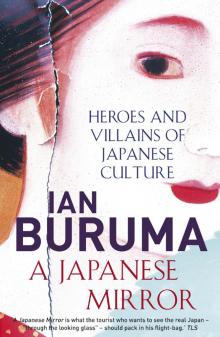 A Japanese Mirror
A Japanese Mirror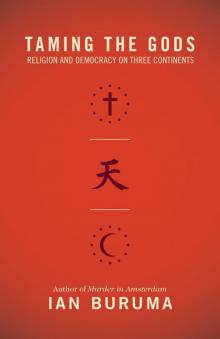 Taming the Gods
Taming the Gods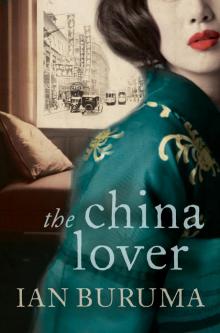 The China Lover
The China Lover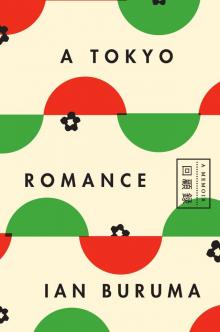 A Tokyo Romance
A Tokyo Romance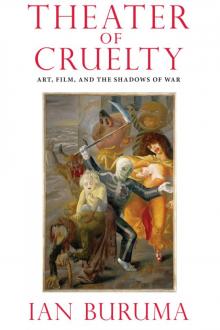 Theater of Cruelty
Theater of Cruelty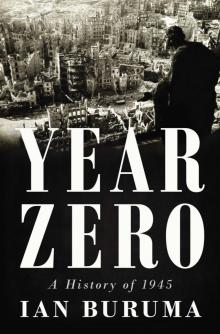 Year Zero
Year Zero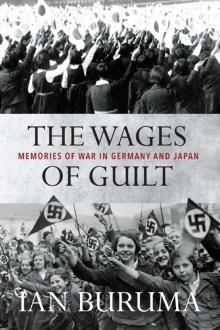 The Wages of Guilt
The Wages of Guilt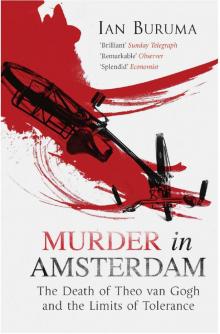 Murder in Amsterdam
Murder in Amsterdam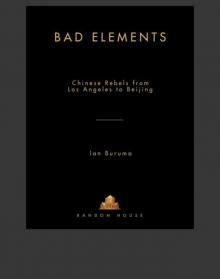 Bad Elements
Bad Elements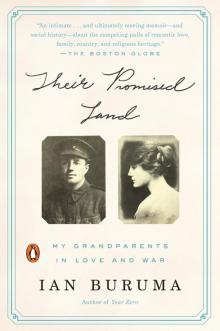 Their Promised Land
Their Promised Land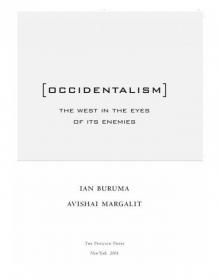 Occidentalism
Occidentalism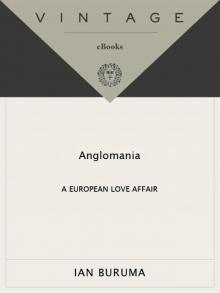 Anglomania
Anglomania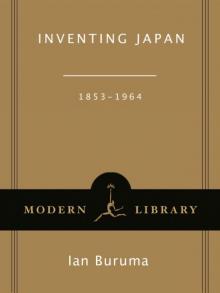 Inventing Japan: 1853-1964 (Modern Library Chronicles)
Inventing Japan: 1853-1964 (Modern Library Chronicles)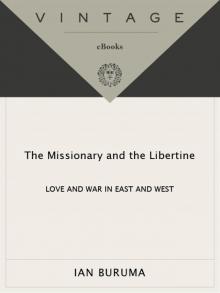 The Missionary and the Libertine
The Missionary and the Libertine